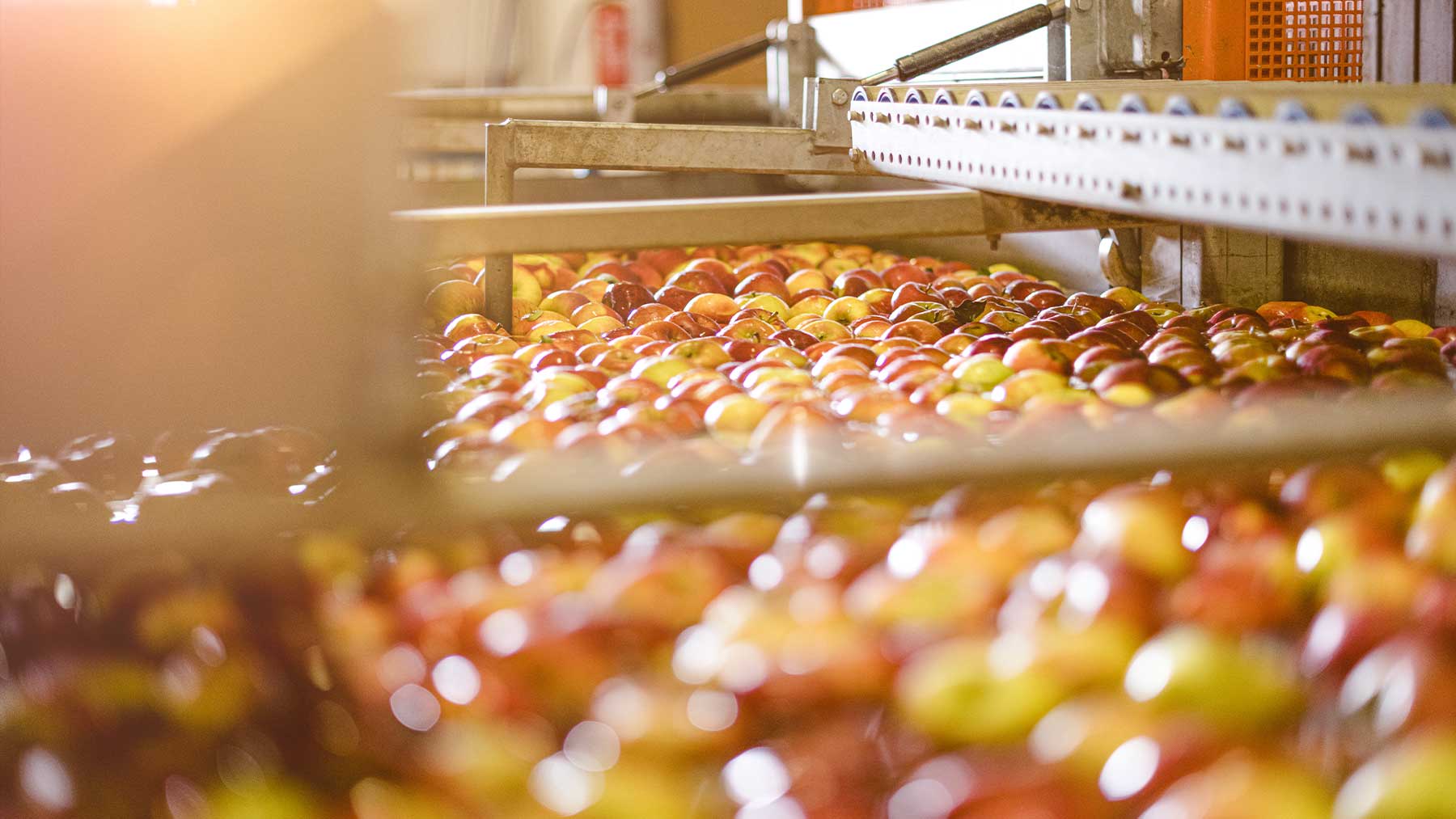New York Apple Sales, Inc. works with nine different apple packing facilities across New York state, from the Hudson Valley near New York City to the Champlain Valley to the state’s western region near Rochester. With the combined inventory of many facilities, a single order may include varieties grown in different parts of the state and packed in different facilities.
When COVID-19 began spreading on the East Coast, packing facilities quickly adopted new safety measures and have continued updating those practices as new information becomes available. As essential businesses, packing facilities remained in operation, with some even opting for continuous production so that employees and shifts could be spread out.
Employees were re-trained on the importance of proper handwashing techniques and encouraged to do so more frequently—along with staying home if they were experiencing any symptoms. Masks became a requirement in accordance with federal guidelines. Visitors, including sales representatives and truck drivers, were restricted from the building. All paperwork for transit was handled outside the building.
Fortunately, production for the 2019 crop year was winding down when the virus began causing significant disruptions to daily life. Thus, much of the effort for health and safety preparedness efforts have switched to planning for the upcoming season when peak times require more employees. Many facilities are looking to implement thermometer check systems for next fall and adding physical barriers to help facilitate social distancing.
“We’ve spent a lot of time reading guidelines and studying best practices to understand how other people are addressing it,” said Van Acker. Her role on the field team normally involves visiting facilities, engaging with apple growers and offering recommendations to improve fruit quality. She also works with the sales desks to determine the ideal sales pace based on quality.
“All staff [on the field team] have transitioned to a home office situation, which has been relatively easy, but we’re not used to an entire work week at our desks. We’ve been focused on other projects we don’t normally prioritize during production,” Van Acker explained.
Preparing for long-term operational changes due to the virus has been a major project for her team.
“How do we protect workers coming in for spring and harvest and packhouses for the upcoming seasons?” asked Van Acker. “We are looking into ways to improve shifts, visitor policies, sanitation practices in line with where we think things will be this fall.” The company’s number one goal is to ensure workers are safe and feel supported.
“You want to create a work environment people want to be in and enjoy their job,” said Van Acker.
Though Van Acker acknowledges that changes will happen throughout every process in the apple industry to help people spread out and remain safe, essential business—like the apple industry will continue.
“There will be some changes in transportation—like staggering start times. There’s different things we can do to move forward with projects that had been going. Orchards have been planted. Posts have been set. If a new bag line was going to be added, it’s moving forward,” said Van Acker, listing examples of how her team has remained focused through an unprecedented situation.
Being essential means the work continues even when it’s not business as usual.








